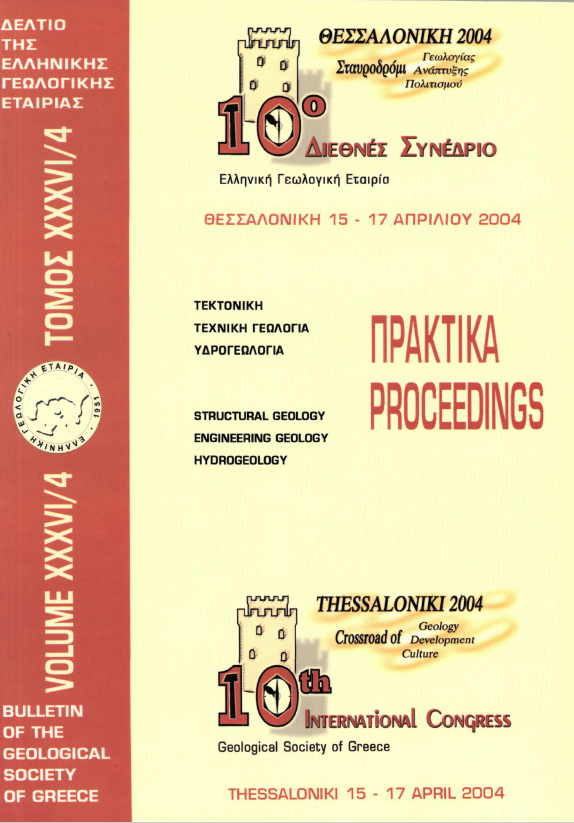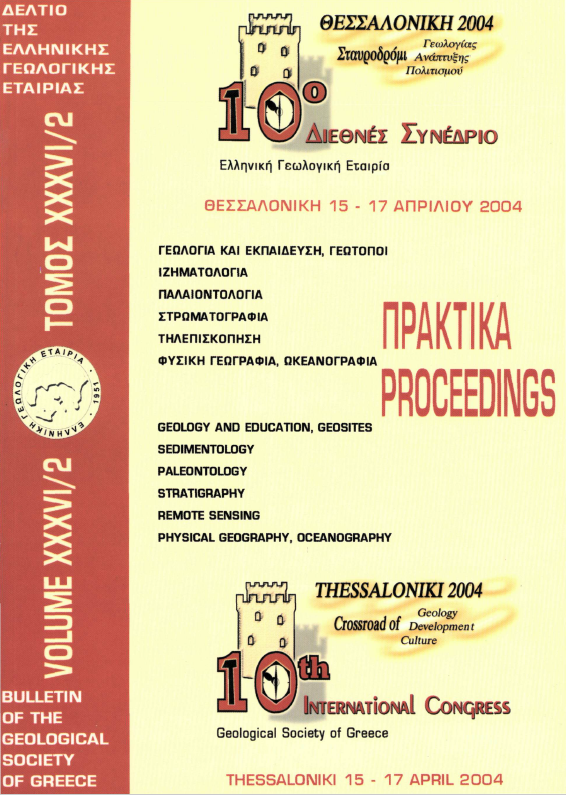STUDY OF THE PROGRESS OF SEAWATER INTRUSION WITHIN A PLAIN AREA OF RHODOPE PREFECTURE
Résumé
This paper investigates the progress of seawater intrusion within the plain area of Xylagani - Imeros, in SW part of Rhodope Prefecture, as well as the suitability of groundwater for several purposes, after qualitative valuation of groundwater samples from selective wells of the study area. The conclusions also include some managerial suggestions for the confrontation of seawater intrusion. The investigation in question took place between 1994-1997 and 2002-2003, and involves the installation of piezometric wells, geoelectric sounding measurements, grain size analyses, monitoring of the groundwater level fluctuations in selective wells, specific electrical conductivity measurements and chemical analyses of water samples from selective wells of the study area.
Article Details
- Comment citer
-
Πλιάκας Φ., Διαμαντής I., Καλλιώρας A., & Πεταλάς Χ. (2004). STUDY OF THE PROGRESS OF SEAWATER INTRUSION WITHIN A PLAIN AREA OF RHODOPE PREFECTURE. Bulletin of the Geological Society of Greece, 36(4), 2057–2066. https://doi.org/10.12681/bgsg.16705
- Rubrique
- Hydrology and Hydrogeology

Ce travail est disponible sous licence Creative Commons Attribution - Pas d’Utilisation Commerciale 4.0 International.
Authors who publish with this journal agree to the following terms:
Authors retain copyright and grant the journal right of first publication with the work simultaneously licensed under a Creative Commons Attribution Non-Commercial License that allows others to share the work with an acknowledgement of the work's authorship and initial publication in this journal.
Authors are able to enter into separate, additional contractual arrangements for the non-exclusive distribution of the journal's published version of the work (e.g. post it to an institutional repository or publish it in a book), with an acknowledgement of its initial publication in this journal. Authors are permitted and encouraged to post their work online (preferably in institutional repositories or on their website) prior to and during the submission process, as it can lead to productive exchanges, as well as earlier and greater citation of published work.




